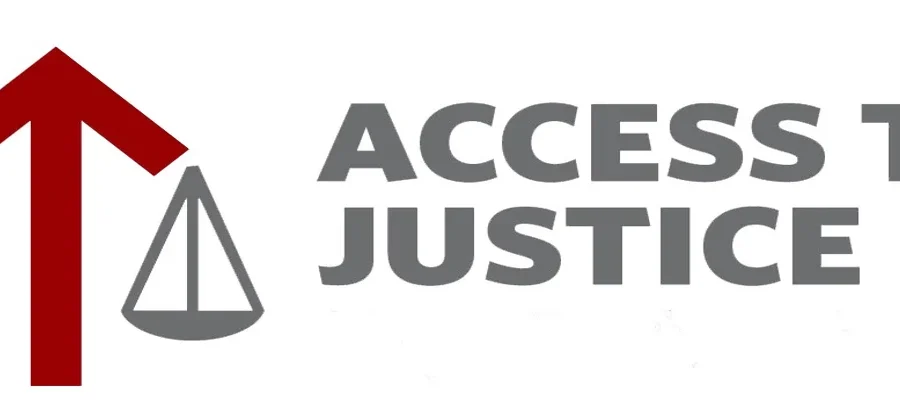Access to justice is a cornerstone of a democratic society and an essential component of the rule of law. In a country like India, marked by stark economic disparity, widespread illiteracy, and systemic delays in the justice delivery system, the dream of justice for all can remain elusive unless proactive mechanisms are in place. Legal aid and Lok Adalats (People’s Courts) are two such significant initiatives undertaken to bridge the justice gap for the marginalized and underprivileged sections of society.
It’s easy to say everyone is equal before the law. But how equal are we when one person has a team of high-priced lawyers and another doesn’t even know how to file a complaint? Access to justice does not merely mean the presence of courts or legal statutes. It refers to a system where every individual—regardless of economic status, caste, gender, education, or location—has the ability to seek redress for grievances and protect their rights.
The Indian Constitution underpins this idea. Article 14 guarantees equality before the law, while Article 21 ensures the right to life and personal liberty. Article 39A, introduced through the 42nd Amendment, explicitly directs the State to provide free legal aid to ensure that opportunities for securing justice are not denied to any citizen due to economic or other disabilities.
Despite this constitutional vision, systemic hurdles such as poverty, lack of legal awareness, procedural delays, and the high cost of litigation often prevent large sections of society from accessing justice. Legal aid and Lok Adalats attempt to fill this gap.
Legal Aid: More Than Just Free Lawyers
Legal aid is not a handout; it is a right guaranteed by law. The Legal Services Authorities Act, 1987 formalized the legal aid framework in India by establishing a network of institutions—from the National Legal Services Authority (NALSA) to State and District Legal Services Authorities (SLSAs and DLSAs). These bodies are tasked with ensuring that legal assistance is available to those who need it most.
Free legal aid is available to several categories of people: women and children, Scheduled Castes and Scheduled Tribes, victims of human trafficking or natural disasters, disabled persons, and individuals whose income falls below a notified threshold. Legal aid services include more than court representation. They offer:
- Legal advice and counseling,
- Drafting of legal documents and notices,
- Assistance in filing applications and complaints,
- Mediation and pre-litigation services, and
- Legal literacy and awareness programs.
However, challenges remain. Many eligible individuals are unaware that they are entitled to legal aid. Where services are accessed, quality may vary—some legal aid lawyers are committed and effective, while others lack training or motivation.
Lok Adalats: Justice Through Dialogue, Not Litigation
While legal aid offers representation, Lok Adalats provide resolution. Literally meaning “People’s Court,” Lok Adalats are forums that resolve disputes amicably without the formalities of a courtroom. Rooted in the Gandhian principle of conciliation, they offer an alternative to long-drawn litigation.
Established under the same Legal Services Authorities Act, Lok Adalats can take up cases pending in regular courts or even resolve disputes at the pre-litigation stage. These forums function based on voluntary consent of both parties and are presided over by retired judges, lawyers, or social workers.
The key features of Lok Adalats include:
- No court fees,
- Simple and speedy resolution,
- Finality of decisions (no appeal allowed),
- Settlement based on mutual agreement rather than legal adjudication.
Types of Lok Adalats include Permanent Lok Adalats (for public utility services like water, electricity, and transport), National Lok Adalats (organized simultaneously across the country), and Mobile Lok Adalats, which travel to remote areas bringing justice to the doorstep.These forums are especially effective for resolving cases involving family disputes, cheque bounce matters, motor accident claims, labor disputes, and utility bill settlements.
Impact and Shortcomings
Both legal aid services and Lok Adalats have played a transformative role in easing the burden on India’s formal justice system. Millions of cases are resolved through these mechanisms every year, reducing pendency and delivering quick relief to disputing parties
Yet the system is not without flaws. Legal aid suffers from underfunding, inconsistent quality of legal counsel, and limited outreach. Lok Adalats, while effective, may at times pressure vulnerable parties into compromise—especially in family or financial disputes where there is an imbalance of power. Moreover, rural and tribal populations often remain outside the reach of these services due to lack of awareness or logistical barriers. Until legal literacy becomes widespread and legal aid mechanisms are strengthened through proper training and monitoring, the dream of universal access to justice will remain only partially fulfilled.
Conclusion
Access to justice is not a privilege—it is a fundamental right. In a country as vast and diverse as India, achieving this goal requires more than just judicial reform or legal development. It calls for empathy, awareness, and institutional will. Legal aid and Lok Adalats, despite their limitations, have brought justice closer to the common person. They represent a silent revolution—one that bypasses procedural complexities and speaks directly to fairness, dignity, and human rights. In the end, justice is not only about punishing the guilty or compensating the wronged—it is about making sure that no one is left unheard simply because they can’t afford to be heard.
contributed by- Tulip Raghav (intern)

